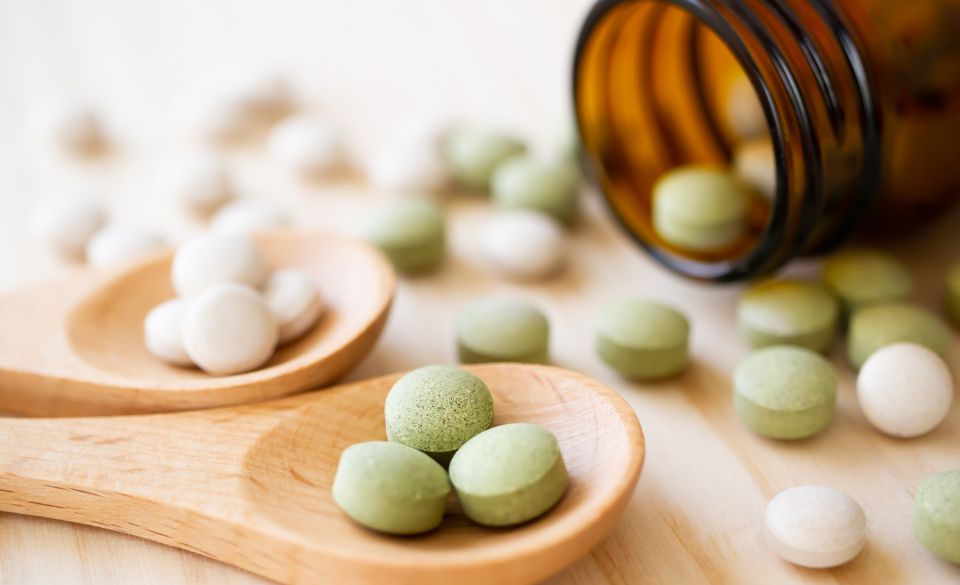
Why Do Runners Have Low Iron? A Complete Guide
Page Contents
Running is an incredibly popular form of exercise and one of the oldest athletic activities in existence. Unfortunately, many runners experience low iron levels due to the demands of the activity. Low iron can lead to fatigue, decreased performance, and a variety of other health issues. In This article we help you understand why it is important for runners to reduce the chances of low Iron.
How Much Iron Should You Take If You Are A Runner?
Iron is an essential mineral for health and for athletes, it is especially important for the supply of energy, mental performance, and the construction and maintenance of the body. Low iron levels in runners is a common problem, affecting both male and female athletes. This article aims to explain why runners may be at a greater risk of developing an iron deficiency and what symptoms to look out for.
Deficiency in Iron
Iron deficiency is defined as low iron levels or a shortage of iron stores in the body. It is the most common nutritional deficiency, especially among athletes. The main cause of iron deficiency is not consuming enough dietary iron. Many athletes do not get the recommended daily allowance of iron for men (8.7 mg) and women (14.8 mg). Iron deficiency is more likely to occur in female athletes and those who have heavy menstrual bleeding or high levels of exercise. Sometimes, the cause of iron deficiency is a lack of absorption from the gut, resulting from another health issue.
The Causes
Running, as an endurance sport, can cause an athlete’s body to use up more iron than usual, causing them to be at an increased risk of developing such a deficiency. During physical activity, the muscle cells oxidize more molecules and use more oxygen – this process, in turn, produces more reactive metabolic by-products that require more iron to be used to scavenge them. Other factors such as poor nutrition, inadequate intake of dietary iron, gastrointestinal disorders, and heavy menstrual bleeding can also contribute to an iron deficiency.
Warning Signs
Iron deficiency can be tricky to diagnose as the symptoms often come on gradually. Common signs and symptoms of low iron include feeling very tired, difficulty concentrating, being short of breath, pale skin and increased heart rate. Additional symptoms could include dry skin, brittle nails, headaches, dizziness, and leg cramps. If left untreated, these symptoms can worsen and lead to anemia.
The Impact on Performance
Athletes who suffer from low iron levels can experience a decrease in their overall performance. Iron is one of the primary nutrients needed to produce hemoglobin, which carries oxygen to the muscles during exercise and is essential for aerobic metabolism. Deficiencies in iron reduce the amount of oxygen that is delivered to the muscles resulting in a decrease in energy production, endurance, and delayed recovery.
How to Prevent and Treat Low Iron
Low iron is a condition in which the body lacks sufficient iron, also known as anemia. Iron is an essential mineral that helps the body make healthy red blood cells as well as other proteins that carry oxygen throughout the body. Without enough iron, the body becomes tired and weak and can be prone to illness. Fortunately, there are several ways to prevent and treat low iron.
The best way to prevent low iron is to make sure you get enough iron in your diet. Including high iron foods such as beef, fish, egg yolks, beans, green leafy vegetables and other dark green vegetables, as well as prune juice and whole grains in your diet can help increase iron intake. If you are vegan or vegetarian, legumes, leafy greens, nuts, seeds, dried fruits, quinoa, and fortified cereals, breads and dairy products are excellent sources of iron. Additionally, uncooked egg whites contain a compound called avidin that binds iron, making it less available to the body, so they should be avoided or consumed together with foods that contain vitamin C to aid in absorption of the iron.
Other strategies to help prevent iron depletion are to reduce the risk of blood loss, avoid alcohol, limit caffeine intake, and take iron supplements, if recommended. Additionally, maintaining a healthy gut and reducing inflammation is also important for iron absorption, so it is important to consume probiotics and fermented foods, as well as foods high in antioxidants and omega-3 fatty acids.
If you are already suffering from low iron, there are treatments available to help. Your doctor can diagnose iron deficiency anemia and recommend treatment based on your individual needs. Generally, treatment includes dietary changes, supplements, and sometimes iron infusions, depending on the severity of the deficiency. Supplements are typically iron tablets, which come in the form of ferrous sulfate, ferrous gluconate, and others, and can be taken several times a day. It is important to take them with a full glass of water and an acidic food, such as orange juice, to aid in absorption. Supplements may take up to 6 months to replenish iron stores, and it is important to consult your doctor and get regular hemoglobin tests to ensure that iron levels are not too high.
In conclusion, low iron is a common issue and can be easily prevented and treated with some simple lifestyle changes. Eating a balanced and diverse diet is key, and taking iron supplements, if necessary, can help replenish iron levels. Always check with your doctor before starting any supplement and get regular hemoglobin tests to assess iron levels and ensure that they are not too high.
Best Iron Supplement For Runners
When it comes to selecting the best iron supplement for runners and athletes, the first step is to determine which form of iron you should use. Iron supplements typically come in two forms: ferrous and ferric. Ferrous iron is more readily absorbed by the body and therefore more likely to provide the desired boost in iron levels. Ferric iron has a slower absorption rate and less likelihood of gastric distress. It’s generally recommended that athletes use a supplement that contains ferrous iron.
When searching for the best iron supplement for runners, look for one that provides a good source of iron and also contains other essential vitamins and minerals. A good supplement should provide at least 20 mg of iron per day, which is usually enough for an active person. Additionally, look for vitamins A, B12, C, D, and folic acid. These vitamins and minerals can help improve absorption and reduce the likelihood of side effects.
Lastly, look for a supplement that is easy enough to take and fits into your lifestyle and training routine. Many supplements come in pill form, but some runners prefer to mix their supplements into smoothies or protein shakes, and others prefer bars or chewables. Choose what works best for you.
In conclusion, finding the right iron supplement for runners and athletes is an important part of maintaining healthy iron levels and optimizing performance. Look for a supplement that provides at least 20mg of iron, comes in a form you prefer, and also contains essential vitamins and minerals. With a bit of research, you should be able to find the perfect iron supplement that meets your needs.
Conclusion
Iron is an essential mineral for athletes for energy, mental performance and building and maintaining the body. Low iron levels can be common in runners but are usually preventable by having a healthy diet. If you experience any of the symptoms related to iron deficiency, it is important to speak to your doctor to get a proper diagnosis. With the right diet, supplements, and lifestyle changes, you can make sure your iron levels remain healthy and prevent a decline in performance.


